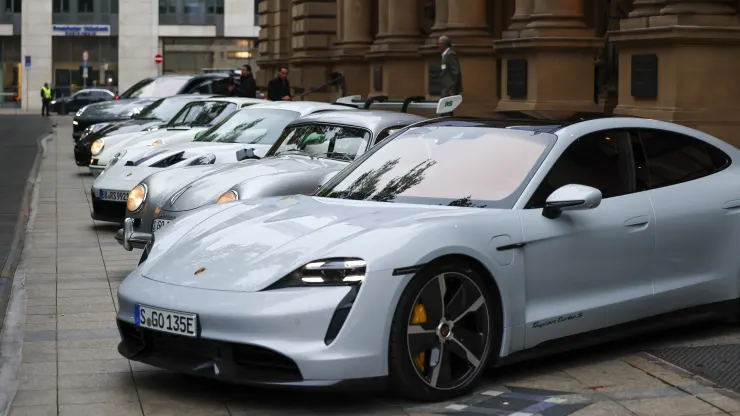
Shares of the iconic sports car brand initially traded at 84 euros ($81) on Thursday morning after they had been priced at the top end of their range late Wednesday, at 82.50 euros. It values the company at roughly 75 billion euros.
By 9:30 a.m. London time Thursday shares had steadied at 84.50 euros. Parent company Volkswagen is offering 911 million shares, a reference to Porsche’s famous 911 model.
“Today is a great day for Porsche and a great day for Volkswagen,” Arno Antlitz, Volkswagen’s chief financial officer told CNBC’s “Squawk Box Europe” Thursday.
The organization knew the IPO would be successful, according to Antlitz, citing “strong financials” and “a very convincing strategy for the future.”
“We were convinced despite the challenging environment this IPO would prove successful, and we were right,” he told CNBC’s Annette Weisbach.
Before trading started reactions were positive, with cornerstone investors having already claimed around 40% of the shares on offer, according to Reuters. Until now the sole owner of Porsche AG, Volkswagen is reducing its stake in the sports car firm, with a 12.5% slice being listed.
Listing shares should give Porsche a financial boost of 19.5 billion euros, giving the company more financial flexibility in terms of electric vehicles, according to Volkswagen.
The landmark listing comes at a time of market choppiness as the auto industry continues to feel the effects of the war in Ukraine, and valuations of other luxury carmakers including Aston Martin, Ferrari, BMW and Mercedes-Benz have all dropped in recent months.
“The Porsche AG has completely decoupled itself from the negative market trends,” one investor told Reuters, translated by CNBC. Companies are thought to be delaying going public because of current market conditions.
The IPO isn’t set to be a trailblazer for other companies to follow suit however, as Porsche remains a particularly strong brand with a unique market position. Volkswagen initially announced its plans for Porsche to go public on Sept. 5.
Antlitz also addressed the ongoing semiconductor shortages, which will continue to be an issue this year.
“We expect a better supply in 2023, but we expect an easing of the shortage to kick in in 2024,” Antlitz told CNBC.